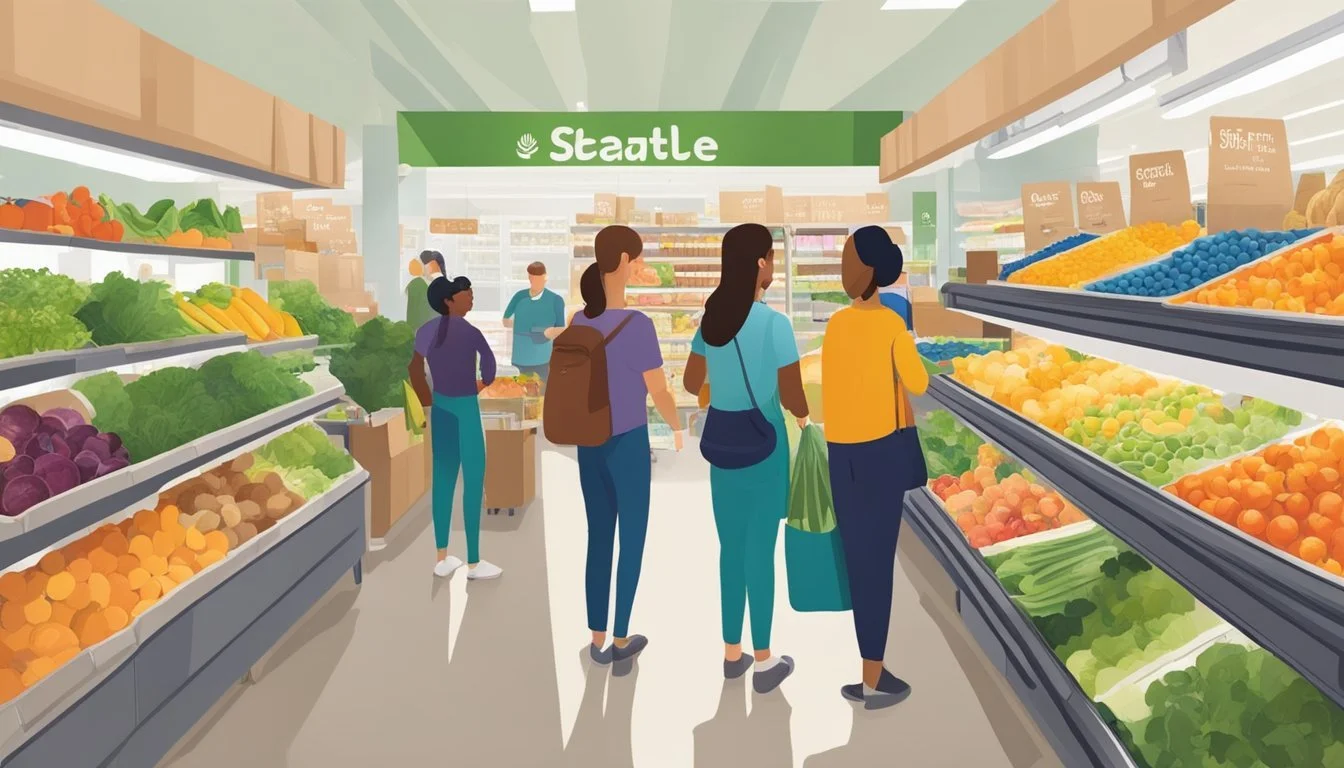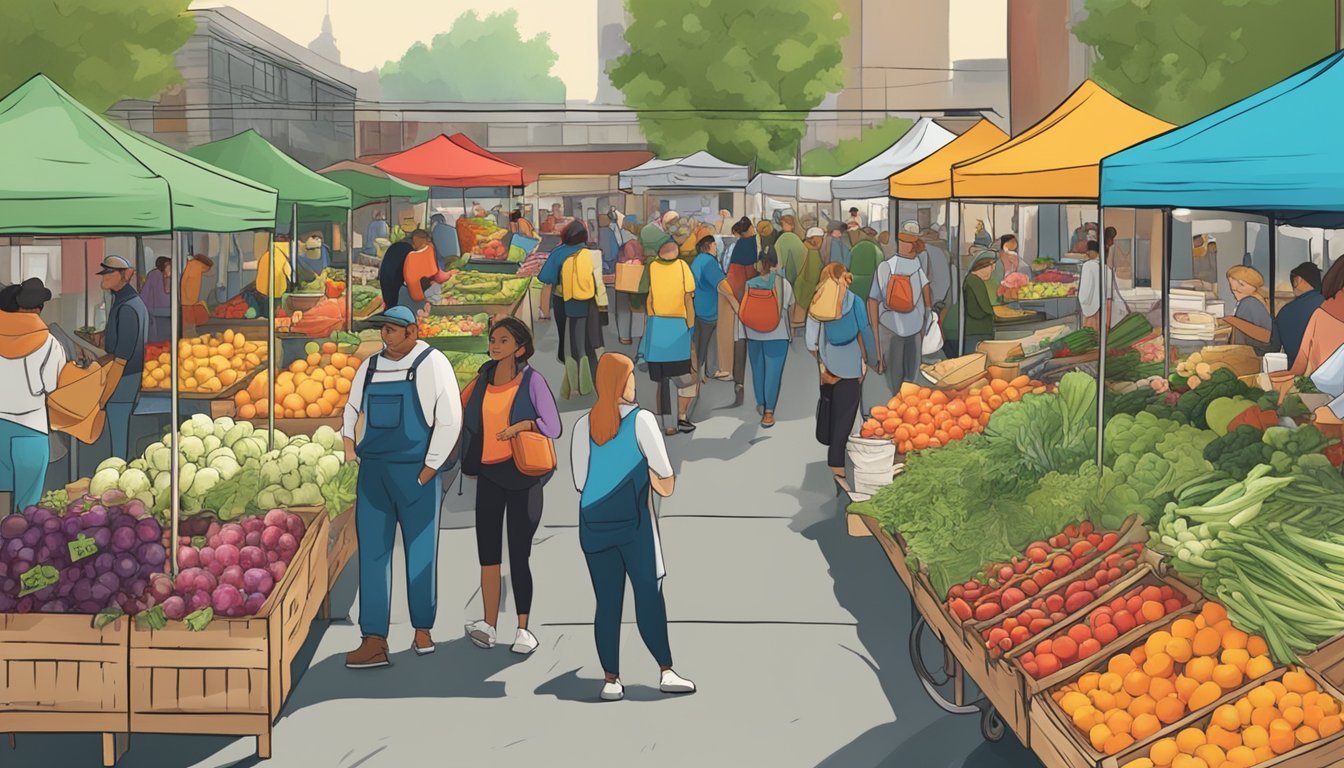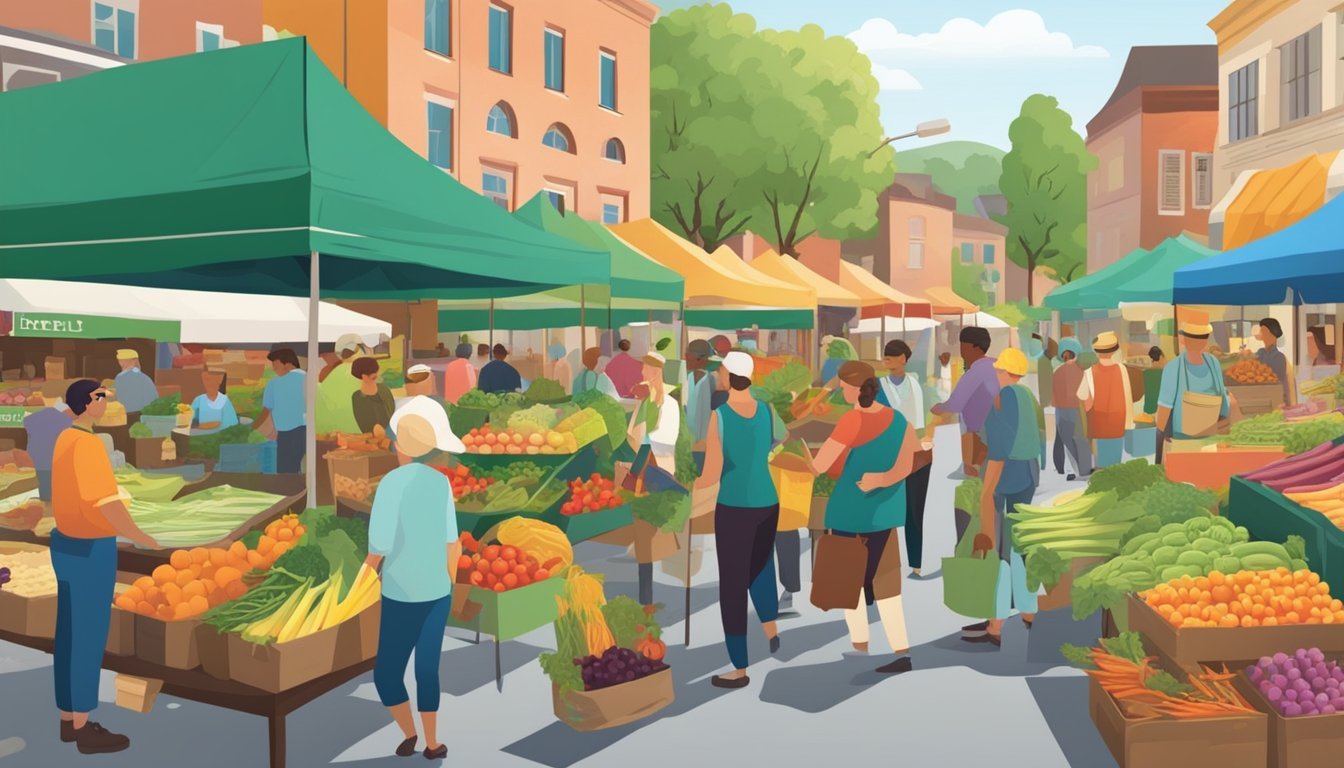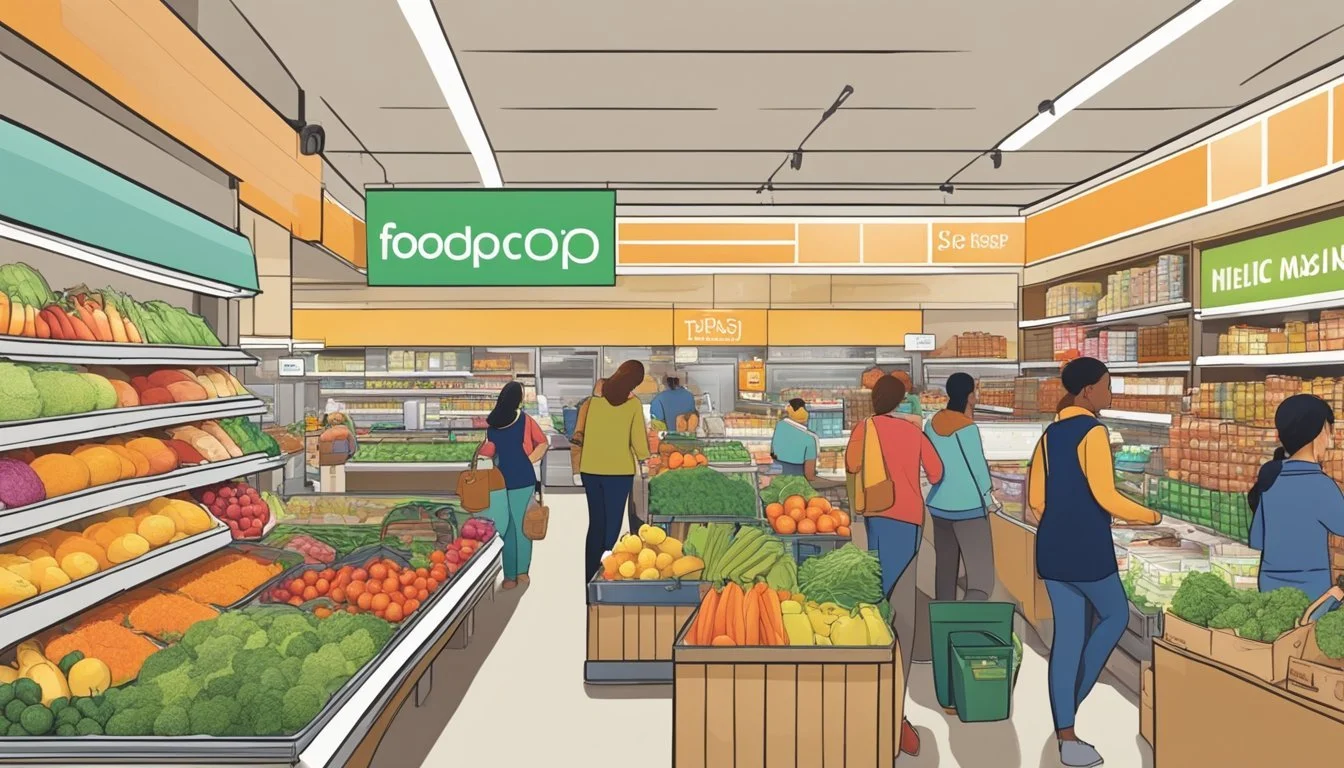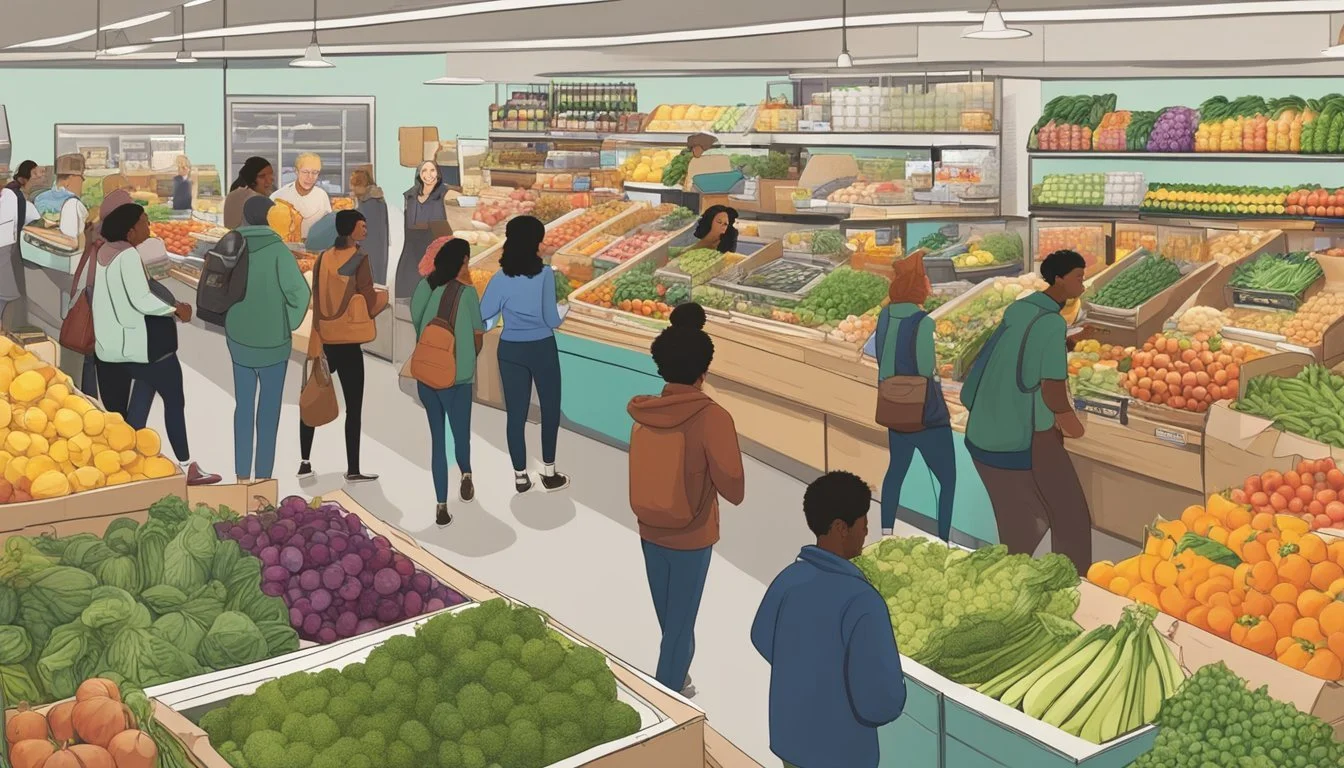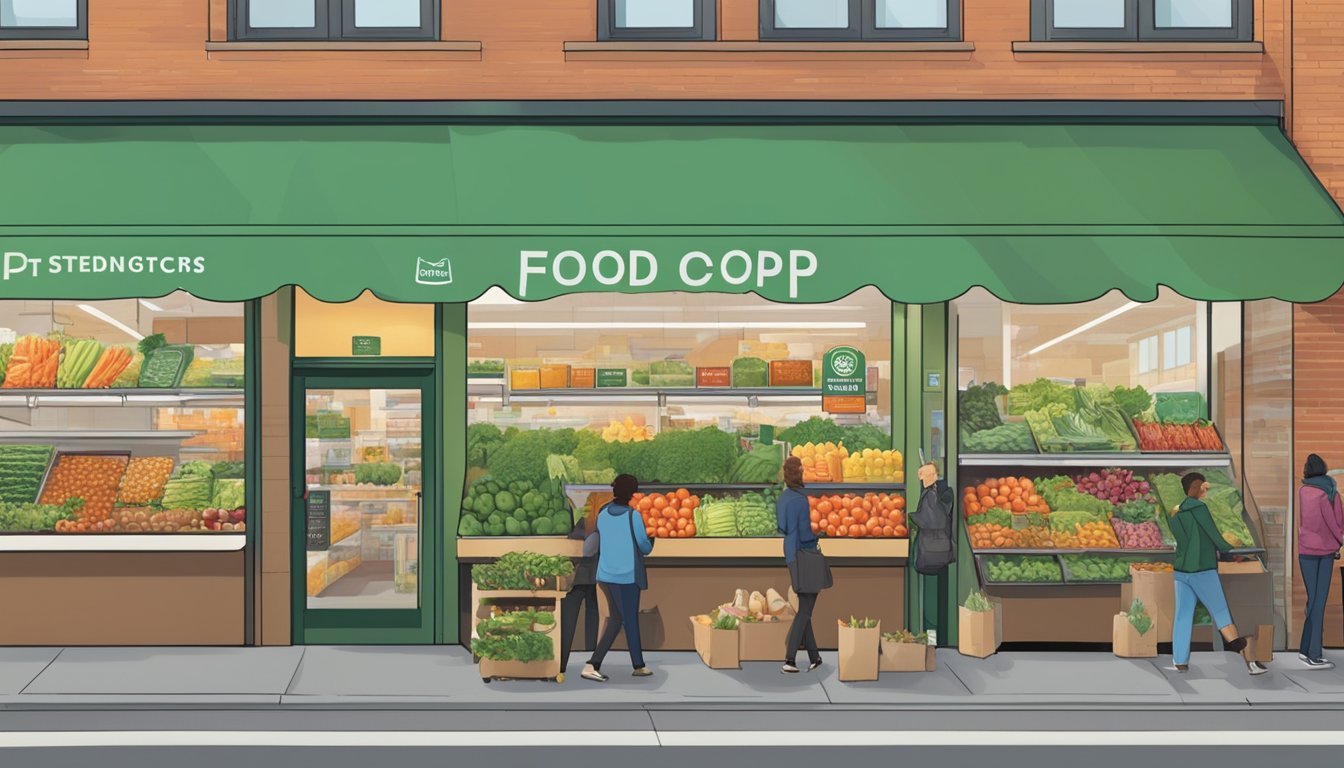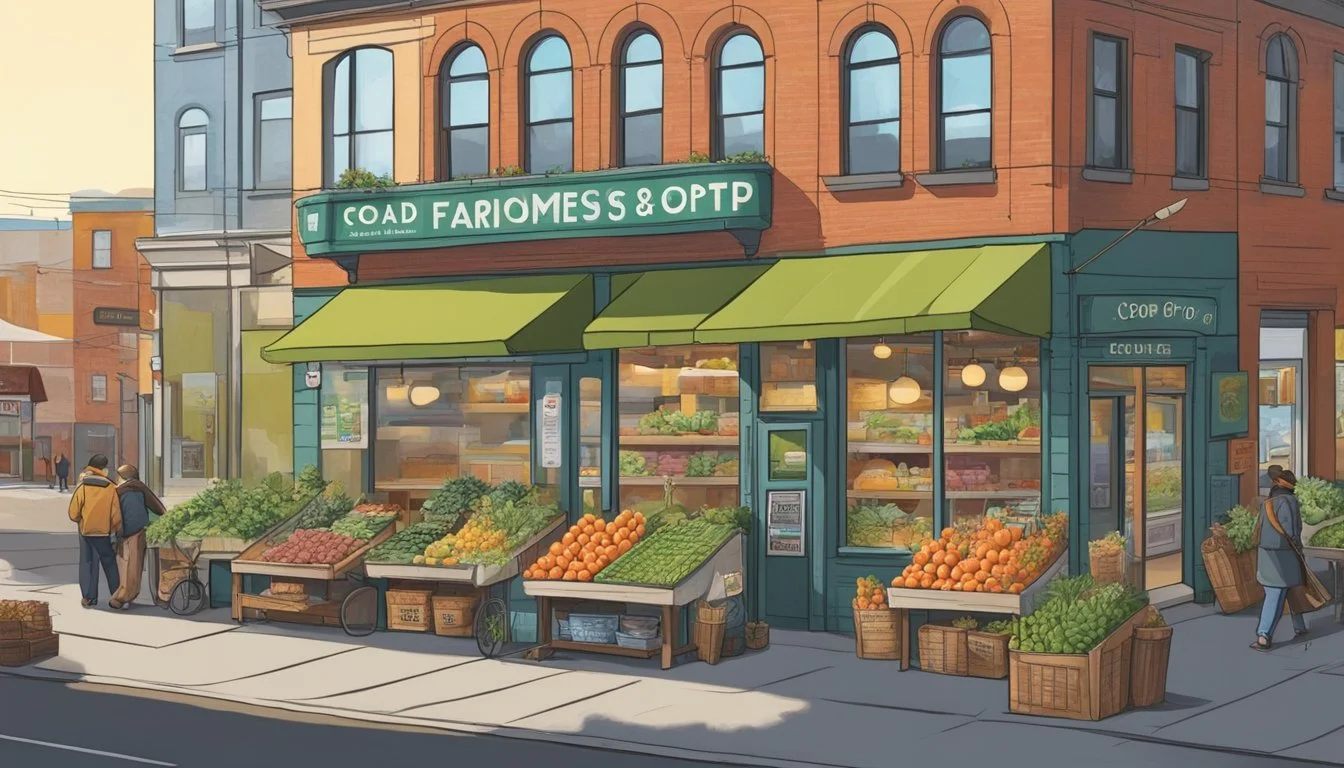Guide to Food Co-Ops in Seattle, WA
Your Source for Local, Sustainable Groceries
Seattle, Washington has long been celebrated for its vibrant food scene, which not only boasts a rich variety of restaurants but also a strong community of food cooperatives, commonly referred to as food co-ops. These co-ops are an integral part of the city's commitment to sustainability and community engagement. They operate on a membership-based system, where shoppers can become part-owners of the cooperative. This model of business democratically empowers consumers by allowing them to have a say in the operations of the store and to share in its profits.
Food co-ops prioritize providing natural and organic products with a strong emphasis on local sourcing. In this way, they support the local economy, reduce the environmental impact of long-distance transportation, and ensure that the produce available is fresh and of high quality. By fostering direct relationships with local farmers and producers, these co-ops help to sustain the agricultural community within the Olympic Peninsula and surrounding regions.
Seattle's food co-ops stand out for their dedication to eco-friendly practices and community accountability. They have become more than just grocery stores; they are educational hubs, offering guidance on nutrition and cooking, and they encourage a socially responsible lifestyle. These institutions, such as the Central Co-op, have evolved over the years and remain crucial gathering points for those who share the values of cooperative economics and the local food movement.
The Basics of a Food Co-Op
In Seattle, like in many other cities, food co-operatives (co-ops) serve as essential community anchors. A food co-op is a cooperative business where the control and benefits are distributed among its members, essentially operating as a democratic organization. These members are often referred to as consumer-owners, because they own a portion of the business and have a say in its operations.
Members typically buy a share of the co-op to attain membership, which grants them the right to vote on important issues and participate in the governance of the co-op through a democratic process. These are the foundation of the co-op's commitment to democratic organization: one member, one vote.
Key Aspects Details Community Co-ops are community-centric, focusing on local needs and values. Cooperative They operate on a cooperative model of shared ownership and collective decision-making. Membership Open to all willing to accept the responsibilities of membership. Democratic Organization Governed by members who actively participate in setting policies and making decisions. Consumer-Owner Members are owners who benefit from the co-op's services and profits.
With emphasis on community and local sourcing, co-ops often offer a range of organic and sustainable food items, meeting the demand for healthy and environmentally friendly products. They prioritize community wellbeing over maximizing profits, often engaging in various community development activities and education on healthy eating and sustainability.
This model not only keeps economic benefits within the community but also ensures that consumer-owners have access to high-quality, fairly-priced food items, while maintaining transparent business practices. Thus, Seattle's food co-ops continue to play a pivotal role in fostering community spirit and sustainable living.
Benefits of Joining a Food Co-Op
Joining a food co-op in Seattle offers multiple advantages, centering on community engagement, quality of products, affordability, support of the local food economy, and member-focused experiences.
Community and Accountability: Food co-ops are more than just stores; they're community hubs. Members collectively own and oversee the co-op, fostering a sense of accountability. This involvement allows members to make meaningful connections and contribute to local initiatives and decisions.
Engages local people in activities
Serves as a gathering spot for making new connections
Enhances community facilities
Quality of Products: Given their commitment to high standards, food co-ops often feature:
Organic produce
Grass-fed meats
Cage-free eggs
Co-ops empower their members to influence the selection of goods, ensuring that shelves are stocked with items that meet or exceed their quality expectations.
Affordability: While offering premium products, co-ops also strive to make items more affordable for their members through various strategies that may include special discounts, bulk buying opportunities, and by minimizing the reliance on middlemen.
Local Food Economy: Food co-ops are pillars of the local food economy. They prioritize sourcing goods from local producers, thereby:
Keeping more money in the local economy
Increasing market access for local food
Supporting local farmers and producers
Members' Interests: As member-owned entities, co-ops prioritize the interests of their members. Evidenced by their business practices, co-ops aim for a triple bottom line—people, planet, profit—benefiting their members while also supporting broader sustainability goals.
Key Food Co-Ops in Seattle
Seattle boasts a vibrant community of food co-ops, known for their commitment to sustainability, local food systems, and consumer-owned business models. These establishments offer residents access to high-quality, organic, and locally-sourced foods while supporting the local economy and agriculture.
Central Co-Op
Central Co-Op stands out as a notable community-owned natural foods cooperative with a history tracing back to 1978. It operates in two prominent locations: on Capitol Hill in Seattle and in Tacoma’s North End. This co-op is dedicated to sustainable practices and community accountability.
PCC Community Markets
PCC Community Markets is widely recognized as one of Seattle's leading organic food co-operatives, with multiple locations across the region, including one in Kirkland. PCC stands apart for its extensive selection of fresh, organic produce and commitment to environmental stewardship.
Seattle Food Co-Op
The Seattle Food Co-Op is a smaller yet integral part of the city's co-operative food scene. It is consumer-owned and focuses on providing an assortment of organic and locally-sourced food options that resonate with Seattle’s eco-conscious consumers.
Rainier Valley Co-Op
Rainier Valley Co-Op is another community-driven food cooperative that offers a range of organic and natural foods. It is known for promoting healthy food choices and for actively participating in the local community to foster an inclusive food system.
Ballard Farmers Market
Although not a co-op, the Ballard Farmers Market is an essential part of Seattle’s local food ecosystem, providing a space for local farmers and artisans to sell directly to consumers. This market supports the region's agricultural community and is a go-to destination for fresh, seasonal produce.
Shopping Experience in Food Co-Ops
When visitors enter a food co-op in Seattle, they are welcomed by a unique shopping environment centered around community and sustainability. At the heart of these member-owned grocery stores is an emphasis on supplying natural foods, with a plethora of organic produce, often sourced locally.
Shoppers can explore the deli sections, which offer homemade recipes prepared from scratch daily, showcasing the co-op's commitment to wholesome and nourishing offerings. The shelves of these co-ops are typically stocked with a wide array of grocery items that cater to a health-conscious clientele.
For those interested in meats and seafood, these co-ops often prioritize ethical sourcing, ensuring that the products available come from local Northwest farmers and ranchers. This practice supports not only sustainable farming methods but also contributes to the local economy.
Grocery Store Layout at Seattle Food Co-ops:
Produce: Seasonally rotated, featuring local and organic options.
Meat: Ethically sourced selections, supporting regional producers.
Seafood: Fresh, often caught sustainably within the Pacific Northwest.
Deli: Daily-made meals with a focus on nutrition and taste.
Shoppers are encouraged to become members, which fosters a robust sense of community and allows them to participate in decisions affecting the co-operative. However, membership is not required to shop. These food co-ops operate with transparency and prioritize customer satisfaction, reflected in their return policies designed to maintain trust while keeping prices competitive.
In summary, the Seattle food co-op shopping experience is centered on high-quality, responsible food sourcing and an inclusive, community-based atmosphere.
Community Engagement and Education
Community and Diversity
Seattle food co-ops prioritize community engagement by actively supporting diversity and inclusion within their operations. These co-ops advocate for community awareness and work towards eliminating hunger and poverty, ensuring that food banks are well-resourced to serve diverse communities.
Education and Training
Education: The co-ops expand access to food and nutrition education tailored to all age groups—youth to older adults—emphasizing culturally relevant content. This empowers individuals through knowledge, enabling them to make informed food choices that are both healthy and sustainable.
Training: Staff and volunteers receive training to engage effectively in legislative efforts and community support activities. This enhances the capabilities of food co-ops in supporting both the local food economy and the varied needs of the communities they serve.
Operations
Land Access: Improved access to land is a critical operation for growing food and developing community-based projects, with an emphasis on assisting those most affected by past discriminatory policies.
Food Action Plan: Seattle's Food Action Plan involves the community in its development, aiming to strengthen the regional food economy and improve food accessibility.
By engaging with these strategic areas, Seattle's food co-ops demonstrate a commitment to fostering a cooperative environment that values education, participation, and an inclusive approach to community welfare.
Sourcing Policies and Practices
Seattle food co-ops prioritize sourcing from a variety of producers and farmers that align with the co-op’s commitment to sustainable practices and food justice. They strive to ensure the selection of products is not only high in quality but also reflects their dedication to environmentally sound choices and community support.
Organic Produce: Co-ops generally offer a diverse range of organic produce, ensuring that items are grown without synthetic pesticides or fertilizers, promoting health for both consumers and the planet.
Sustainable Meats: Emphasis is placed on providing meats that have been raised with ethical farming practices. This includes attention to animal welfare and minimizing environmental impact.
Quality Deli: Deli offerings are often prepared with locally sourced, sustainably sourced, and ethically produced ingredients, reflecting the co-op’s values even within its prepared foods.
Category Sourcing Criteria Produce Organically grown, local where possible Meat Sustainably and ethically raised Seafood Wild and sustainably harvested Packaged Goods Preference for local and eco-friendly packaging
In terms of seafood, an emphasis is put on wild and sustainably harvested options to support marine ecosystems. The co-ops typically work closely with local suppliers to procure sustainable seafood, reducing the environmental impacts associated with fishing and aquaculture.
By maintaining these rigorous sourcing policies and practices, Seattle food co-ops ensure that they provide their customers with high-quality, responsibly produced food, while contributing to the local food economy and championing the well-being of their suppliers and the environment.
Specialty Products and Dietary Options
Seattle's food co-ops offer an array of products catering to specialized dietary needs and preferences. Vegan options are plentiful, with many co-ops providing a diverse range of plant-based alternatives, from dairy-free cheeses to mock meats.
Those following gluten-free diets will find dedicated sections for their needs. Shelves are stocked with gluten-free breads, pastas, and snacks, painstakingly labeled to prevent cross-contamination concerns.
Shoppers seeking organic produce can relish in the variety of fruits and vegetables sourced from local farms, ensuring freshness and support for the community. The co-ops focus on sustainable agriculture practices, enhancing the value of the products.
In addition, individuals interested in natural supplements and bodycare will appreciate the assortment of products available. These range from vitamins and minerals to skincare items made with organic and cruelty-free ingredients.
For those interested in homeopathic remedies, Seattle's co-ops offer solutions for natural healing. These establishments provide resources for education on the use of such remedies, empowering members with knowledge for informed choices.
Here's a quick glance at what one can find:
Dietary Need Products Available Vegan Dairy-free cheeses, mock meats, tofu Gluten-Free Breads, pastas, snacks Organic Produce Local fruits, vegetables Natural Supplements Vitamins, minerals Bodycare Organic skincare items Homeopathic Remedies Natural healing solutions
Each co-op in Seattle prides itself on sourcing high-quality, ethical products, fostering a healthier community and a sustainable local food system.
Local Partnerships and Economy Impact
Food co-ops in Seattle have become integral to fostering robust partnerships between local farmers and urban customers. The Seattle Fresh Bucks program exemplifies this relationship by assisting residents in purchasing healthy, locally-sourced food, thus reinforcing the local food economy. With over 30 local retailers involved, this initiative not only benefits the consumers but also supports the producer-consumer partnership.
Local partnerships are exemplified by entities such as Good Food Economy and Seattle Good Business Network. The annual Good Food Connections event further bridges the gap between food artisans, chefs, and stakeholders. This synergy underscores the significance of such collaborations on the local economy, with every dollar spent generating additional economic activity.
Farmers markets and farm stands become pivotal points where helpful staff assist customers, ensuring they understand the origin and quality of the produce they purchase. This directly enhances the producer-consumer relationship and solidifies trust within the community.
Impact on Local Economy Investment Spending Partnerships
These co-ops and programs underscore a commitment to an equitable and resilient food system. It is not just nutrition but also community empowerment and economic sustainability that lie at the heart of Seattle's food co-ops.
Financial Aspects and Membership Pricing
In Seattle, Washington, food co-ops operate on a membership basis, providing affordable access to high-quality food while fostering a sense of community. Central Co-op, for example, extends its membership to all interested shoppers, ensuring a wide range of great prices for both the basics and specialty items.
Membership fees are modest and structured to encourage long-term commitment and participation in the co-op’s success. For instance, Olympia Food Co-op offers a lifetime membership for a minimal cost of $29. This lifetime membership underlines the co-op's commitment to making good food accessible to a broader population.
Members frequently enjoy various financial perks:
Discounts on special orders: Members can order cases or specific quantities of select items at reduced rates.
Appreciation discounts: Recognition for member loyalty is shown through discounts during certain months.
Below is a concise summary of membership pricing at Seattle's food co-ops:
Co-op Name Lifetime Membership Fee Discount Opportunities Olympia Food Co-op $29 Yes Central Co-op Membership info required Yes Community Food Co-op Membership info required Yes
Members invest not only in their access to nutritious food but also in supporting ethically sourced products and local producers. The financial aspects of these co-ops are tailored to balance affordability and sustainability, ensuring that members can trust the food on their tables and the system that supplies it.
Additional Services Offered
In addition to providing a variety of grocery items, food co-ops in Seattle, WA feature a range of services to enhance the shopping experience and meet diverse customer needs. These services are designed to cater to the preferences of co-op members and the wider community alike.
Delivery Services
Many co-ops offer delivery services to accommodate the busy lifestyles of Seattle residents. This convenient service ensures that healthy, organic produce and grocery items can be brought right to customers' doorsteps, facilitating access to quality food even for those unable to visit the store.
Juice and Coffee Bar
For shoppers interested in on-the-go options, several food co-ops house a juice and coffee bar. Here, fresh, organic juices are prepared to order, and fair-trade coffee is served, providing a refreshing and ethical choice for a quick drink or a leisurely break during shopping.
Specialty Items
Seattle's food co-ops are known for stocking an array of specialty items that cater to diverse dietary needs and preferences, such as gluten-free, vegan, and locally sourced products, ensuring a unique and tailored shopping adventure.
Housewares
Beyond just edibles, patrons can often find a selection of eco-friendly housewares. These range from reusable containers to natural cleaning products, highlighting the co-ops' commitment to sustainable living and environmental responsibility.
Service Description Delivery Doorstep delivery of groceries for convenience and ease. Juice and Coffee Freshly made juices and fair-trade coffee served on premises. Specialty Items A variety of unique, dietary-conscious products available. Housewares A selection of eco-friendly, sustainable household items.
These additional services are tailored to foster a comprehensive, supportive community hub focused on more than just the sale of groceries but also committed to a lifestyle aligned with co-op values.
Cultural Significance in Seattle
Seattle's food cooperatives stand as a testament to the city's diverse cultural tapestry. Pike Place Market, a notable highlight, bursts with local produce and artisanal foods that reflect the region's bounty. It isn't just a market; it's a vibrant hub where the community's pulse can be felt through every seafood stall and handicraft booth.
Throughout the city, restaurants offer a culinary journey across the globe. Co-ops contribute to this mosaic by sourcing from a variety of cultural backgrounds, ensuring accessibility to culturally relevant and healthy foods. They act as gatekeepers of traditional cuisines, allowing local communities to maintain dietary practices aligned with their cultural identities.
Bakers and pastry chefs in bakeries infuse their wares with flavors that speak of Seattle's diverse communities. Whether through the hands of a longtime Seattle resident or a newly arrived immigrant, each loaf or pastry tells a story of cultural heritage.
Bars and breweries echo Seattle's ethos, with craft beers that not only showcase local ingredients but also the innovative spirit of the city. They often host events that bring together different segments of society, fostering a sense of unity and collective appreciation for the city's various cultures.
Culture Spotlights Description Pike Place Market A historic locale showcasing a mosaic of local crafts and foods. Co-Ops Support local, culturally-diverse suppliers and connect consumers to their roots. Bakeries Offer a slice of Seattle's heritage through culturally-inspired baked goods. Bars/Breweries Serve as social forums, offering craft brews inspired by local and international traditions.
The cooperative model in Seattle nourishes this diversity, ensuring that the community's cultural fabric is represented and sustained in the food scene.

